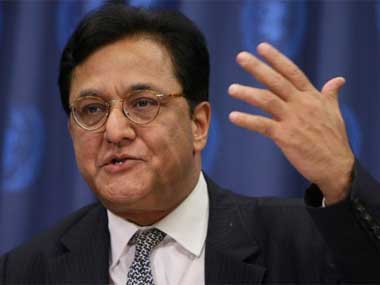Till a few years ago, Yes Bank was everything that one could think of how a model private bank should ideally be. Happy investors (in the 13 years since its listing, the stock gave a return over 31 times), an average 30 percent quarterly growth in bottom line, a promoter who is handholding the bank at every turn; some called it the next HDFC Bank. Rana Kapoor was a seen as a promoter who was willing to stake everything for the bank (Kapoor recently tweeted his intent to never sell his holdings in the bank saying diamonds are forever). He was considered a visionary banker who spoke at length during media interactions about the need for strong corporate governance practices. But, today, Yes Bank and Kapoor himself are facing major questions for allegedly flouting the same golden rules of good corporate governance. He was recently denied an extension by the Reserve Bank of India (RBI) to continue as bank’s CEO. There are two major instances that have come up where the rules of good corporate governance were given a major miss by the bank. First is the non-disclosure of certain major transactions involving the promoter group as exposed by Bloomberg’s Andy Mukherjee in
this piece. [caption id=“attachment_3858755” align=“alignleft” width=“380”] A file photo of Yes Bank MD & CEO Rana Kapoor. AFP[/caption] The Rana Kapoor family, one of the promoters, holds their shares in the bank through three channels—Morgan Credits Pvt Ltd (MCPL), Yes Capital India Pvt Ltd (YCPL) and Kapoor’s direct holding. These parties hold 3.05 percent, 3.28 percent and 4.34 percent respectively. Through the first two entities, Kapoor’s daughters hold bank’s shares. Together, the Kapoor family holds around 10.65 percent in the bank. As the Bloomberg piece finds, by way of two major transactions against the holdings in the bank through MCPL and YCPL, the Kapoor family raised around Rs 1,790 crore. The MCPL’s Rs 1,160 crore transaction was rated by CARE rating agency with a ‘CARE A-; Stable’. These papers were bought by two funds—Reliance Mutal Fund and Franklin Templeton. When the share price fell, Kapoor had to
bring in funds to compensate for the fall. A set of questions sent to Yes Bank seeking its response on the promoter group deals remained unanswered. But, a senior bank official, speaking to this writer on the condition of anonymity, claimed ignorance on the part of the bank about the whole affair. The official said the bank wasn’t aware of the promoter group transactions. “It isn’t Kapoor directly but his daughters who were holding Yes Bank shares through MCPL and YCPL. This money was raised for their entrepreneurial needs. In hindsight, even though it was not legally required, the transactions should have been made known to shareholders,” the official said. The promoters, however, didn’t feel the need to disclose the details of the deal to the public, neither the regulators asked for it. By rules, the Kapoors may not be required to disclose the promoter group transactions or the usage of funds but in the interest of good corporate governance, the promoters and the bank should have informed the public about the same by making a note to exchanges. This is only the latest issue. Much of the problems began for Yes Bank with massive under-reporting of loans that have turned into non-performing assets (NPAs). This cast the first shadow on the bank and investors began to get suspicious. As a result, the RBI judged gross NPAs at Rs 8,373.8 crore for Yes Bank for 2016-17 against the declared gross NPAs at Rs 2,018 crore. Thus, there was a divergence of Rs 6,355 crore or three times the reported amount. The assessment for 2017-18 is yet to be released. Why did the bank choose to hide the actual chunk of bad loans? One must say here—even the approach of the regulator to the Yes Bank issue raises further questions. The RBI left the world guessing about the exact reasons why it did not approve another three-year term for Rana Kapoor. This came after the decision was left pending for about two weeks. The regulator, in a letter dated 17 September, 2018, had said Kapoor could continue as the MD and CEO till 31 January 2019, but there was no clue as to why the regulator decided not to give an extension to Kapoor. Did the RBI get a wind of the transactions of the Kapoor family through the holding companies and was worried? The lack of clarity on what really irked the regulator in the Yes Bank issue to cut down the tenure of the founder-CEO remained a matter of speculation. It remains so even today. Yes Bank is now distancing itself from Kapoors and is in the process of finding a new CEO to rebuild its lost reputation. But the erosion in good corporate governance has done much damage to the reputation of one of India’s youngest and well-known banks; the persisting uncertainty has also caused large erosion in the shareholder wealth. Yes Bank shareholders aren’t a very happy lot today. From the peak of Rs 393.85 on 20 August, the bank’s shares have lost 53 percent. The promoters will have to offer an explanation to the minority shareholders about why they kept the small shareholders’ in the dark about the Rs 1,790 crore transaction, even if they can argue that disclosure wasn’t required on legal grounds. The rules of good corporate governance aren’t written in any book but are deeply embedded in the institution itself. (Data support from Kishor Kadam)
Yes bank and Rana Kapoor himself are facing major questions for allegedly flouting the golden rules of good corporate governance
Advertisement
End of Article


)

)
)
)
)
)
)
)
)



